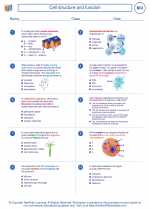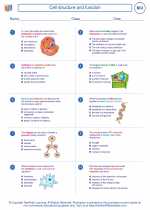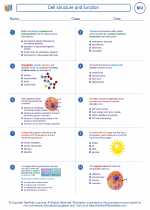Hydrogen
Hydrogen is the first element on the periodic table with the atomic number 1 and symbol H. It is the most abundant element in the universe, constituting about 75% of the elemental mass. Hydrogen is a colorless, odorless, and highly flammable gas. It is the lightest element and is found in the stars and gas giants in the form of molecular hydrogen (H2).
Properties of Hydrogen
- Atomic Number: 1
- Atomic Mass: 1.008
- Physical State: Gas
- Boiling Point: -252.87°C
- Melting Point: -259.2°C
Uses of Hydrogen
Hydrogen has a wide range of applications, including:
- Production of ammonia for fertilizers
- Hydrogenation of fats and oils in food industry
- Production of methanol and hydrochloric acid
- Fuel for hydrogen fuel cells in electric vehicles
- Manufacturing of electronic products
Hydrogen in Biology
Hydrogen is a crucial element in biological systems:
- It is a component of water (H2O), which is essential for all living organisms
- Hydrogen ions (H+) are involved in pH regulation and energy production in cells
- Hydrogen bonding plays a key role in the structure of biological molecules such as DNA and proteins
Study Guide
When studying hydrogen, it's important to focus on its properties, abundance, uses in various industries, and its significance in biological systems. Understanding the role of hydrogen in water, pH regulation, and biological molecules is crucial for a comprehensive understanding of the element.
Be sure to review the periodic table to understand the position of hydrogen and its relationship to other elements. Additionally, explore the advancements in hydrogen fuel cell technology and its potential impact on the environment and energy sustainability.
Finally, consider the ethical and environmental implications of hydrogen production and its use as a fuel source, and how it compares to traditional fossil fuels.
[Hydrogen] Related Worksheets and Study Guides:
.◂Biology Worksheets and Study Guides High School. Cell structure and function

 Worksheet/Answer key
Worksheet/Answer key
 Worksheet/Answer key
Worksheet/Answer key
 Vocabulary/Answer key
Vocabulary/Answer key
 Vocabulary/Answer key
Vocabulary/Answer key
 Vocabulary/Answer key
Vocabulary/Answer key
 Vocabulary/Answer key
Vocabulary/Answer key
 Vocabulary/Answer key
Vocabulary/Answer key
